|
|
|
|
|
|
|
|
Anthony
Grosch on
The Ideal of Brotherhood
in Four Classic Chicago Novels
Tuesday,
April 5, 5:30-8:30pm
19 South Wabash, 2d floor
Cocktails at
5:30, presentation 6:00-6:30 followed by discussion and more
cocktails. $40 includes drinks, two cigars,
and sandwiches.
Reservations are required.
IN 20 MINUTES Professor Grosch will give
us an introduction to four
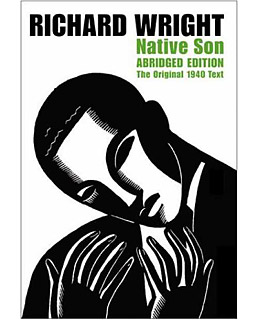 classic
Chicago novels from the 30s and 40s -- James T. Farrell's
Studs Lonigan; Richard Wright's
Native Son;
Willard Motley's
Knock on Any Door;
and Nelson Algren's The
Man with the Golden Arm --
and read some selected passages. There's no need to do any
reading ahead of time, but you may bring questions if you have
them. classic
Chicago novels from the 30s and 40s -- James T. Farrell's
Studs Lonigan; Richard Wright's
Native Son;
Willard Motley's
Knock on Any Door;
and Nelson Algren's The
Man with the Golden Arm --
and read some selected passages. There's no need to do any
reading ahead of time, but you may bring questions if you have
them.
Dr. Grosch
writes: Chicago
(incorporated 1837) is, above all, an American city. And
as Chicagoans, our ideology (a term of the left), or our
consciousness (a term of the right), is inseparable from the
ideals that shaped the European (and American) Enlightenment.
These ideals
emerge from such thinkers as Jean-Jacques Rousseau, Montesquieu,
and Voltaire in France; John Locke,
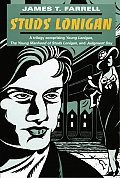 Jeremy
Bentham, and Thomas Hobbes in England; and Thomas Paine, Thomas
Jefferson, and Benjamin Franklin in America. The Enlightenment
promoted deism, rationalism, skepticism, empiricism, and
individualism. Despite inevitable ethnic conflicts
throughout the city’s history, Chicagoans have always been
exposed to the Enlightenment ideal of tolerance toward fellow
human beings. This ideal of tolerance is passionately
evoked in four classic Chicago novels: Studs Lonigan, Native
Son, Knock on Any Door, and The Man with the Golden Arm. Each of
these works present themes rooted in American literature, which
was infused with Enlightenment ideals. Jeremy
Bentham, and Thomas Hobbes in England; and Thomas Paine, Thomas
Jefferson, and Benjamin Franklin in America. The Enlightenment
promoted deism, rationalism, skepticism, empiricism, and
individualism. Despite inevitable ethnic conflicts
throughout the city’s history, Chicagoans have always been
exposed to the Enlightenment ideal of tolerance toward fellow
human beings. This ideal of tolerance is passionately
evoked in four classic Chicago novels: Studs Lonigan, Native
Son, Knock on Any Door, and The Man with the Golden Arm. Each of
these works present themes rooted in American literature, which
was infused with Enlightenment ideals.
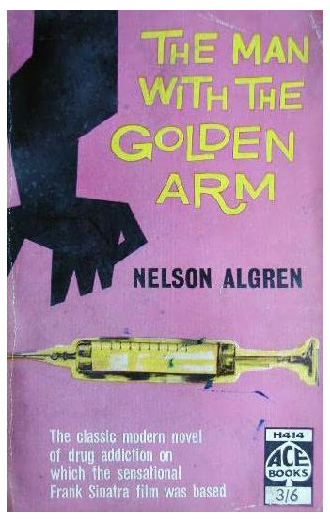 Tony
Grosch served in the 25th
Infantry Division, graduated from Chicago Teachers College
(B.Ed. 1962), Roosevelt University (M.A. 1973), and Northwestern
University (Ph.D. 1979). His doctoral dissertation was
Chicago Novels: An Introduction for
Teachers. He taught in the
Chicago Public Schools (1962-1993): Jenner Elementary, Orr High,
and Lincoln Park High, where he was English Department Chair.
In 1994, Tony joined the English Department of the University of
Illinois at Chicago (UIC), where he is Lecturer Emeritus.
He is currently teaching a course in the UIC’s Honors College on
Herman Melville’s Moby-Dick.
Tony Grosch is a life-long Chicagoan. Tony
Grosch served in the 25th
Infantry Division, graduated from Chicago Teachers College
(B.Ed. 1962), Roosevelt University (M.A. 1973), and Northwestern
University (Ph.D. 1979). His doctoral dissertation was
Chicago Novels: An Introduction for
Teachers. He taught in the
Chicago Public Schools (1962-1993): Jenner Elementary, Orr High,
and Lincoln Park High, where he was English Department Chair.
In 1994, Tony joined the English Department of the University of
Illinois at Chicago (UIC), where he is Lecturer Emeritus.
He is currently teaching a course in the UIC’s Honors College on
Herman Melville’s Moby-Dick.
Tony Grosch is a life-long Chicagoan.
April 5 - On this date in 1955,
Winston Churchill resigned as British prime minister.
|
|
|
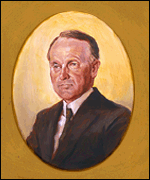
Anthony Grosch
Coming up
Tuesday, April 12
Lauren Viera,
New Cocktails for Spring: A Lesson in
Mixology.
19 S. Wabash, 2d floor.
Tuesday, April 26
Michael Turner,
God, the Multiverse, and Cosmic
Arrogance.
19 S. Wabash, 2d floor.
Tuesday, May 10
Robert Wallace,
Why did the Athenians Kill
Socrates?
19 S. Wabash, 2d floor.
Tuesday, May 24
Alfred Rasho,
Making Short Documentary Films.
19 S. Wabash, 2d floor.
In June thru August the Cigar Society will meet
every nice Tuesday at the Ceres Cafe, outdoors, next to the
Board of Trade Building and Jack Schwartz cigars.
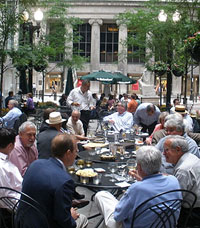
|
|
|
|
|
|
|
|
About
the Cigar Society of Chicago
ONE OF THE OLDEST AND greatest
traditions of the city clubs of Chicago is the discussion of
intellectual, social, legal, artistic, historical, scientific,
musical, theatrical, and philosophical issues in the company of
educated, bright, and appropriately provocative individuals, all
under the beneficent influence of substantial amounts of tobacco
and spirits. The
Cigar Society of Chicago embraces this tradition and
extends it with its Informal Smokers,
University Series lectures, and Cigar Society Dinners,
in which cigars, and from time to time pipes and cigarettes,
appear as an important component of our version of the classical
symposium. To be included in the Cigar Society's
mailing list, write to the Secretary at
CigarSociety@logicophilosophicus.org.
|
|
|
|